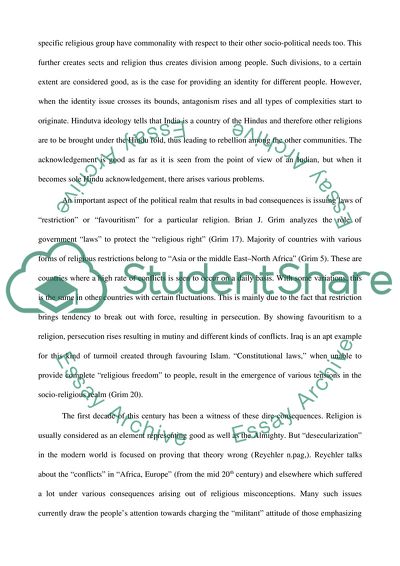Cite this document
(“The Role of Religious Beliefs in Promoting Social Conflict and War Research Paper”, n.d.)
The Role of Religious Beliefs in Promoting Social Conflict and War Research Paper. Retrieved from https://studentshare.org/miscellaneous/1619091-the-role-of-religious-beliefs-in-promoting-social-conflict-and-war
The Role of Religious Beliefs in Promoting Social Conflict and War Research Paper. Retrieved from https://studentshare.org/miscellaneous/1619091-the-role-of-religious-beliefs-in-promoting-social-conflict-and-war
(The Role of Religious Beliefs in Promoting Social Conflict and War Research Paper)
The Role of Religious Beliefs in Promoting Social Conflict and War Research Paper. https://studentshare.org/miscellaneous/1619091-the-role-of-religious-beliefs-in-promoting-social-conflict-and-war.
The Role of Religious Beliefs in Promoting Social Conflict and War Research Paper. https://studentshare.org/miscellaneous/1619091-the-role-of-religious-beliefs-in-promoting-social-conflict-and-war.
“The Role of Religious Beliefs in Promoting Social Conflict and War Research Paper”, n.d. https://studentshare.org/miscellaneous/1619091-the-role-of-religious-beliefs-in-promoting-social-conflict-and-war.


